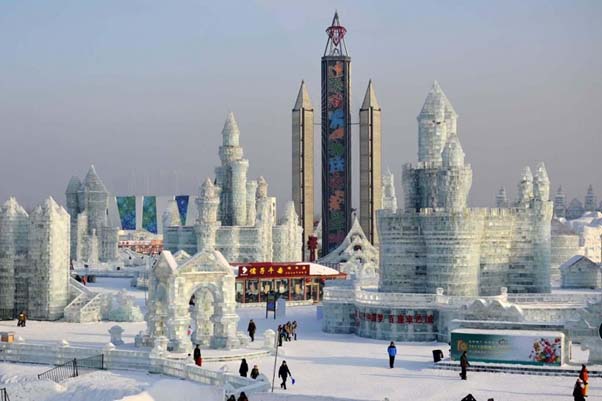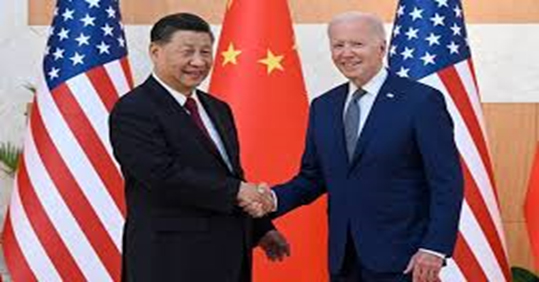Escalation, Invasion or Act of War? The Ukraine crisis and its impact on Asia.
Posted on : November 16, 2022Author : Suchandra Bhaduri

On February 24, 2022, Russia began an aggressive attack and invasion by land, sea and air of Ukraine as the world watched cities crumble into dust. Ukraine, though not part of the North Atlantic Treaty Organization (NATO) began receiving support from its members, backed by the United States as the conflicts began to intensify. The reason for the support can be traced back to the days of the Cold War.
NATO was born at the end of the Second World War in 1949 with 12 states as its member. It made a promise to protect West European states against any aggression of the Soviet Union. Article 5 of the Washington Treaty highlighteda collective defense policy which served as ‘strategic reassurance’(George & Sandler, 2022). What began as a collective security alliance soon became an instrument for the spread of American economy and politics in Europe. With many states such as Greece, Turkey, and West Germany and Spain joining the alliance, it became all the more formidable by the 1980s. The end of the Cold War in the 1990s meant that the East European countries were now free to begin their own nation-building process isolating themselves from the Soviet Union (Choonara, 2022).
The role of NATO changed with the collapse of the Soviet Union. It now became an alliance to ensure Europe’s resources- geographic, demographic, economic and military to remain secure from adversaries. It also became central to the US strategy of maintaining global primacy, by launching a war against terror around the world(Menon & Ruger, 2020). The expansion of NATO into Eastern Europe also became unhindered, with countries like Czech Republic, Hungary, Poland (1997), Bulgaria, Estonia, Latvia, Lithuania, Romania, Slovakia and Slovenia (2002), Albania and Croatia (2009), all former Warsaw Pact members joining NATO, realizing the importance of the already successful western alliance organization for their growth and protection. NATO soon became a symbol, a protector of global peace, a champion of democracy, while simultaneously spreading American influence all over the world. The alliance began promoting economic reform, bringing militaries under civilian control in the Eastern European countries(Menon & Ruger, 2020).Russia against such expansions, sent several objections, but they made little difference to NATO’s expansionist policy.

Source: BBC News
Numerous critics warned the US that this eastward expansion of NATO would provoke resistance from Russia, that materialized as problems began cropping up in 2008, with a war against Georgia. This war snuffed out Georgia’s NATO ambitions. This was followed by the 2014 crisis that began in Ukraine. A step to join EU by Ukraine, straining economic and trade relations with Russia provoked Russia. Added to this was an alleged coup that ousted a pro-Russian government in Ukraine highlighted the American wish to align Ukraine with the west. This led to the annexation of Crimea, Ukraine’s sole Russian majority province, signaling the beginning of a long- drawn troubled relationship. While internal conflicts and factions in Ukraine plagued the government, a ceasefire agreement in 2015 brought the armed conflict to a halt. But this was not a satisfactory solution, as NATO began deploying battalions,fearing Russian expansion into other states in Eastern Europe. NATO also began giving Comprehensive Assistance Packages (CAP) to strengthen its defense in Ukraine (NATO.inc, 2022). For Ukraine, this trans-Atlantic alliance offers a wide range of economic benefits and a protection against aggression with Russia. For Moscow, NATO’s enlargement is a signal of rupture with its pro-Russian ethnic groups, a threat to its dominance in the Black Sea and Don River.
Early 2021 saw Moscow conducting military exercise in the east of Ukraine, U.S. intelligence picking up signals of an impending invasion of Ukraine also began mobilizing its troop in the Ukrainian borders. All speculation came true when Russia invaded Ukraine in February 2022. Calling it the ‘gravest threat to Euro-Atlantic security’ NATO leaders condemned this invasion. Calling it an ‘act of war’, an unprovoked attack on Ukraine’s sovereignty and territorial integrity’, the world reacted. Ukraine, though not a member of NATO, ineligible to receive troops from member countries, began receiving weapons, military equipment from the trans-Atlantic states. NATO also began imposing economic sanctions on Russia as it began bombing and attacking various cities in Ukraine. Kyiv moved a fast-track motion to join the military alliance, which angered Moscow even more. The fear of a third world war, ‘a nightmare scenario’, lingered in the minds of NATO’s members, as Ukraine’s membership in NATO at this juncture would automatically mean that NATO members become part of this ongoing conflict. What NATO members fear is that, allowing Ukraine’s membership, imposing stricter sanctions, declaring a no-fly zone, sending troops to aid Ukraine would escalate the conflict in Europe.Member states thus, want a resolution of the conflict, restoring Ukraine’s government before letting it in. They also believe that becoming a NATO member should not be a concern for Ukraine anymore, as it is receiving all the help NATO can offer even without a membership.
The Russian invasion coupled with the impact of the two-year pandemic, had several adverse effects around the world.Russia and Ukraine being global suppliers of oil, gas, wheat, sunflower oil impacted supply chains, bringing inflation, destabilizing development trajectories and threatening economic recovery, especially in several South-Asian states. Pakistan, Sri Lanka, Nepal, Maldives, Afghanistan, Bhutan and Bangladesh all have suffered, some better than the other. India, in the midst of the conflict between Ukraine and Russia has maintained neutral while voting in UN resolutions, focusing mainly on dialogue, diplomacy and humanitarian assistance to Ukraine. It enjoys partnership relations with Russia and wishes to continue to do so. Trade linkages now look towards Iran for East-West trading activities. Russia has traded with India through the Suez Canal and sea-routes which have become very vulnerable due to changed political environment (Ahmadi, 2022). What gains prominence here is the International North-South Transport Corridor (INSTC) connecting Russia through the Caucuses, shortening travel time between Russia and India, changing the whole geoeconomic scenario of the world. Sri Lanka continues to cripple under a debt, corruption, pandemic and collapse of trade routes. With increasing decline of tourism from several countries, it struggles to survive without foreign help. The focus of the world shifted from Afghanistan to Ukraine, and led the Taliban to reintroduce several projects it had launched before. Who suffered most in all this struggle are the students who travelled from countries such as Nepal, Bhutan, Pakistan and India to Ukraine(Trigunayat, 2022). What we notice here is a predominance of a stance of neutrality, silence, and an overarching urge to push for dialogue and negotiation rather than condemnation of Russia. Response from the ten ASEAN (Association of Southeast Asian Nations) members were also varied. Singapore like many nations around the world condemned Moscow, announced a number of financial sanctions and export control measures. Indonesia, Brunei and Philippines on the other hand did not call Russia an aggressor, even when they condemned the attacks. Malaysia expressed sadness, Vietnam and Laos did not speak against its biggest defense partner terming the conflict as ‘complex and sensitive’(Shah & Pachaly, 2022). Myanmar’s junta government being recognized by Russia, supported its actions as legitimate. What has emerged to be true is how several economies faced distress due to this conflict. However, what we see is an urge to prioritize national interests instead of condemning Russian aggression. This implies the growth of a strategic shift in the attitude of Asian countries, where they understand how they are played as pawns in several of these crisesonly complicating their trade, tourism, economic growth and energy resources. What this crisis also questioned was the relevance of geoeconomics for ensuring security in the world and western capabilities of reacting against aggression. As China awaits silently, gaining inspiration from the Russian invasion of Ukraine, observing NATO’s reaction to this war, what the western world now fears is an aggressive onslaught on Taiwan.
References
Ahmadi, A., 2022. Russia-Ukraine War: Implications for Asian Geoeconomics. [Online] Available at: https://thediplomat.com/2022/07/russia-ukraine-war-implications-for-asian-geoeconomics/
Choonara, J., 2022. The devastation of Ukraine: NATO, Russia and imperialism.. International Socialism.
George, J. & Sandler, T., 2022. NATO defense demand, free riding, and the Russo-Ukrainian war in 2022. Journal of Industrial and Business Economics.
Menon, R. & Ruger, W., 2020. NATO enlargement and US grand strategy: a net assessment. International Politics.
NATO.inc, 2022. Relations with Ukraine. [Online] Available at: https://www.nato.int/cps/en/natohq/topics_37750.htm
Shah, S. & Pachaly, J., 2022. The Ukraine War: Perspectives and Reactions in Asia. [Online] Available at: https://in.boell.org/en/ukraine-war-reactions-asia
Trigunayat, A., 2022. The War in Ukraine: Impact on South Asia. [Online] Available at: https://indiafoundation.in/articles-and-commentaries/the-war-in-ukraine-impact-on-south-asia/
Suchandra Bhaduri
Intern AGA




